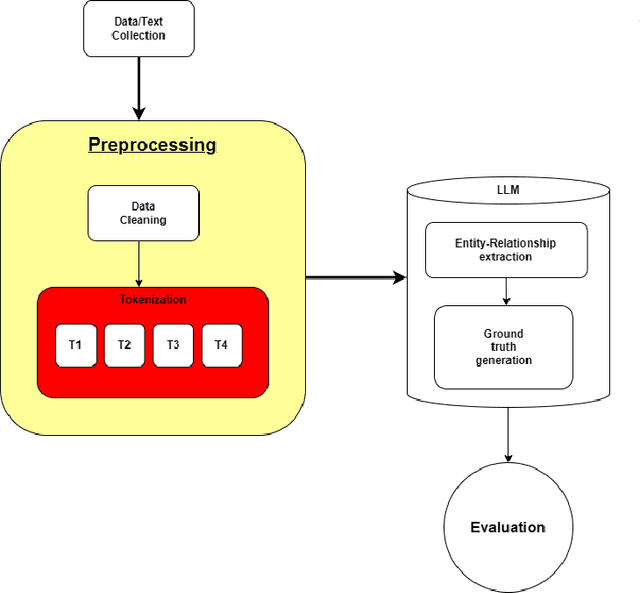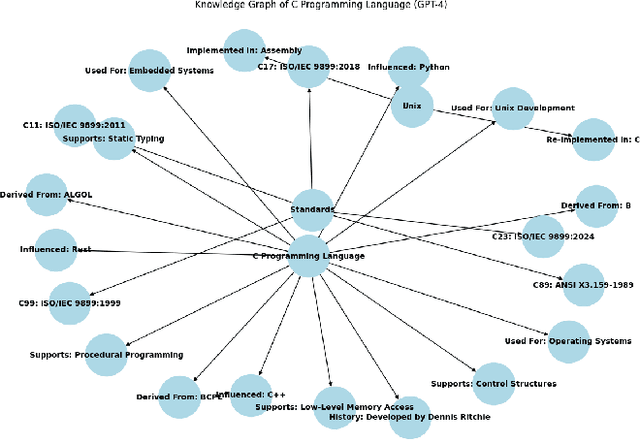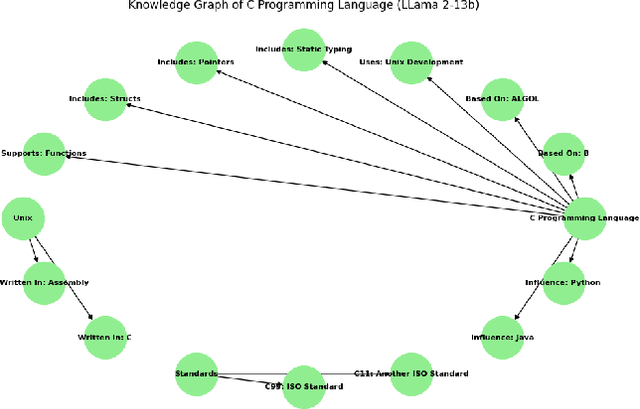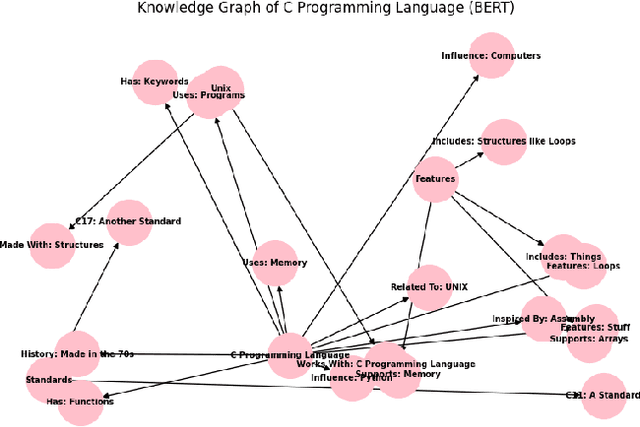Nandan Vaghela
Generating Knowledge Graphs from Large Language Models: A Comparative Study of GPT-4, LLaMA 2, and BERT
Dec 10, 2024



Abstract:Knowledge Graphs (KGs) are essential for the functionality of GraphRAGs, a form of Retrieval-Augmented Generative Systems (RAGs) that excel in tasks requiring structured reasoning and semantic understanding. However, creating KGs for GraphRAGs remains a significant challenge due to accuracy and scalability limitations of traditional methods. This paper introduces a novel approach leveraging large language models (LLMs) like GPT-4, LLaMA 2 (13B), and BERT to generate KGs directly from unstructured data, bypassing traditional pipelines. Using metrics such as Precision, Recall, F1-Score, Graph Edit Distance, and Semantic Similarity, we evaluate the models' ability to generate high-quality KGs. Results demonstrate that GPT-4 achieves superior semantic fidelity and structural accuracy, LLaMA 2 excels in lightweight, domain-specific graphs, and BERT provides insights into challenges in entity-relationship modeling. This study underscores the potential of LLMs to streamline KG creation and enhance GraphRAG accessibility for real-world applications, while setting a foundation for future advancements.
Med-Bot: An AI-Powered Assistant to Provide Accurate and Reliable Medical Information
Nov 14, 2024


Abstract:This paper introduces Med-Bot, an AI-powered chatbot designed to provide users with accurate and reliable medical information. Utilizing advanced libraries and frameworks such as PyTorch, Chromadb, Langchain and Autogptq, Med-Bot is built to handle the complexities of natural language understanding in a healthcare context. The integration of llamaassisted data processing and AutoGPT-Q provides enhanced performance in processing and responding to queries based on PDFs of medical literature, ensuring that users receive precise and trustworthy information. This research details the methodologies employed in developing Med-Bot and evaluates its effectiveness in disseminating healthcare information.
 Add to Chrome
Add to Chrome Add to Firefox
Add to Firefox Add to Edge
Add to Edge